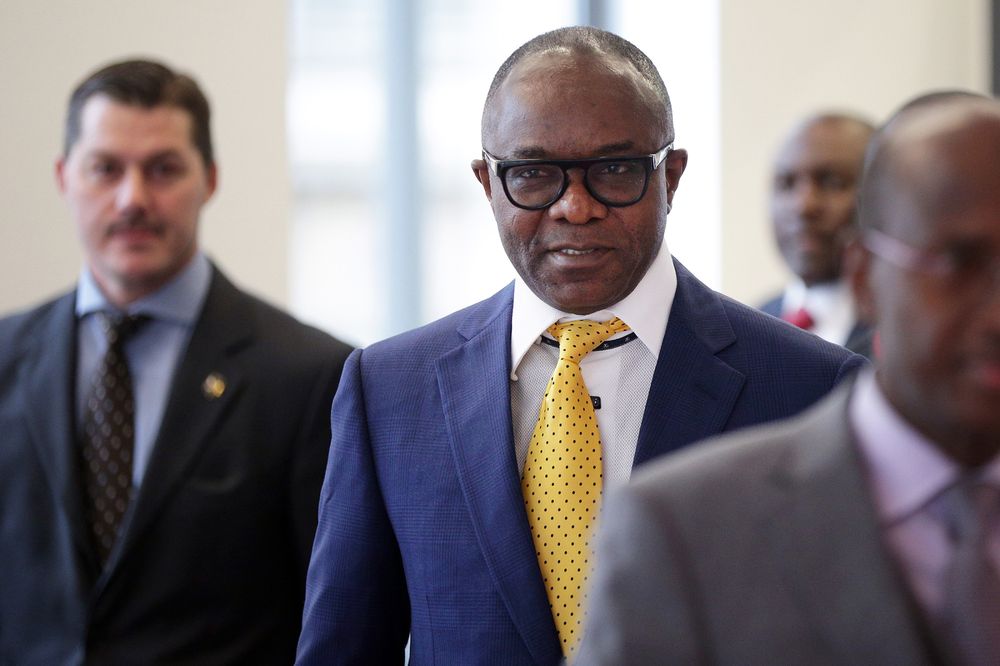- Ensure Emergency Fuel Supply, FG Tells NNPC
The Federal Government on Thursday directed the Nigerian National Petroleum Corporation to source for emergency petrol supply in order to clear queues of motorists at filling stations across the country before the end of this week.
According to the Minister of State for Petroleum Resources, Ibe Kachikwu, such emergency supply will help fill up the gaps in the system that created the current scarcity of petrol being experienced in the country at present.
The minister stated that the national oil firm had been directed to also track its cargoes to know their expected time of arrival, adding that the government had undertaken strategic steps to address the current fuel crisis.
Kachikwu told journalists in Abuja that regulatory agencies like the Department of Petroleum Resources and the Petroleum Products Pricing Regulatory Agency had commenced stricter monitoring of the supply and distribution of Premium Motor Spirit by oil dealers.
He said the fuel crisis was due to the fact that the NNPC was the sole importer of the commodity, adding that other marketers had stopped importing PMS.
On other emergency steps being taken by the NNPC to fill up the gaps in petrol supply, the minister stated that four cargoes of PMS were expected in the next four days, while about 30 vessels would come in within one week.
Kachikwu said the Federal Government was also considering additional trucking to major cities by the NNPC, using the corporation’s strategic reserves in Suleja, Minna, Gusau and Gombe.
The states to be fed with large quantities of petroleum products, apart from Lagos, according to him, include Abuja, Kano, Sokoto axis and the North-East.
The final strategy, he noted, involved flooding the market with more products to cushion the effect of over-subscription and sharp practices through the Kaduna refinery, which has started producing about 750,000 litres of PMS, and the Port Harcourt refinery, which will in the next one week commence the production of 2.1 million litres per day.
“What the buying public is expected to see over the next week is a significant improvement in Lagos. Lagos (fuel) queues have already started thinning out and it is expected to get better by Friday. Abuja queues are also expected to thin out completely by the weekend, while areas in Kaduna are to be served by the refineries and strategic reserves from the Suleja depots,” the minister stated.
In the long term, Kachikwu stated that emphasis would be on the revamp and upgrade of refineries, as efforts were on to ensure that the process for the award of contracts for the facilities was concluded before the end of the year, while work on them would commence in January.
Meanwhile, some petrol stations in Akure and other towns in Ondo State have started selling petrol at N147 per litre through the ‘black market’.
Many filling stations in Akure, Owo and some other towns had long queues of motorists and motorcyclists on Thursday, while others were shut due to non-availability of the product.
While few major petrol marketers were selling at the official pump price of N145 per litre, it was observed that many independent marketers were not selling and those who had the product sold it through the ‘black market’ at around N147 per litre.

 Forex3 weeks ago
Forex3 weeks ago


 Naira2 weeks ago
Naira2 weeks ago
 Billionaire Watch2 weeks ago
Billionaire Watch2 weeks ago






 Naira3 weeks ago
Naira3 weeks ago






 Naira2 weeks ago
Naira2 weeks ago


 Naira1 week ago
Naira1 week ago




 Naira4 weeks ago
Naira4 weeks ago






 Naira1 week ago
Naira1 week ago






















